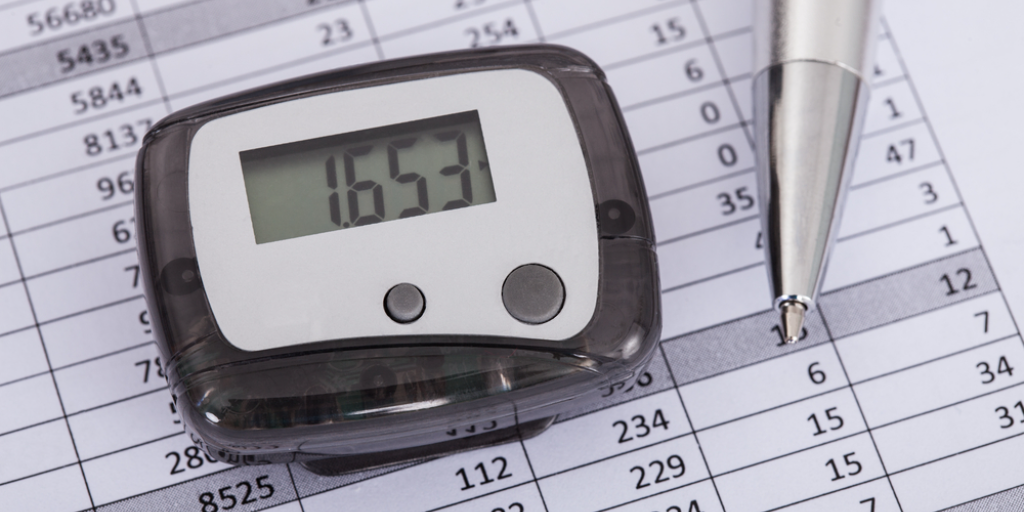Capitalize on
“Capitalize on” means to take advantage of a situation or an opportunity. You use “capitalize on” when there’s an opportunity to gain some type of advantage, and you then take that opportunity.
Usually when a country wins the rights to hold the Olympics, there’s a general interest in sports and wellness before the games begin. People are learning about the sports that are coming, there’s a lot of publicity, physical activity is top of mind.
If you sell potato chips, this is not a great opportunity. But if you sell fitness equipment, or if you are a company in the health and wellness space, then this is an opportunity for you. And in the early 1960s , a company in Japan decided to capitalize on the country’s interest in fitness ahead of the Olympics. The company recognized that this was a favorable situation, a good opportunity for them. And the company decided to take advantage.
This company made clocks, but they quickly made a pedometer, a small device that counts your steps. They marketed it as the 10,000-step meter , and it was a popular product. By making this product, the company capitalized on Japan’s interest in fitness before the Olympics.
You form this by saying, “capitalize on” plus a thing, a thing or a situation that you will take advantage of. Capitalize on interest in fitness, so “interest in fitness” is the thing or situation that the company took advantage of.
Let’s try a few more examples.
Threads, as you heard in Lesson 594 , is Meta’s new app to compete with Twitter. The app reached over 100 million downloads. But that doesn’t make it a success. That’s a good situation, but getting people to download the app is just the beginning.
Now Meta needs to capitalize on that early success. They need to take advantage of it. This is a favorable circumstance. This is good opportunity: the app is on people’s phones. That’s good. But now Meta needs to capitalize on it. Meta needs to turn this opportunity into success; let’s see if they can do it. They have been slow to roll out new features like hashtags and it’s already been a few months.
In Lesson 592, you learned about live video game streaming . Twitch dominated the market for a long time. But then Twitch made a number of moves that angered its most popular streamers. So a new company called Kick decided to capitalize on frustration with Twitch. “Capitalize on frustration with Twitch”: that means the company decided to take advantage of creators’ frustration with Twitch, so Kick launched its own competing service.
Most often, you use “capitalize on” in a competitive situation, like in business. Here’s another way to use it: in sports. If one team makes a lot of mistakes, the other team will seek to capitalize on their mistakes.
I just watched a baseball game in which one team walked nine batters. That’s bad. That’s giving the opponent a gift. And sure enough, the other team capitalized on all those mistakes and won the game. The other team was given a gift, and they took advantage of it and won the game.
Do you know the name Vivek Ramaswamy? He’s running for president in America, as a Republican. Although he’s technically running against Donald Trump, he takes every opportunity to praise the former president. It’s a strange campaign. Anyway, the first Republican candidates’ debate was last month, and Vivek Ramaswamy had a good night. He got a lot of attention, a lot of screen time during the debate. He had some good lines.
But nobody votes at a debate. They vote in the primary elections and caucuses early next year. So Vivek Ramaswamy needs to capitalize on his good debate performance. What does that mean? He needs to use the momentum of the debate to raise money from campaign contributors. He needs to produce commercials and advertisements that reinforce his message from the debate.
He should use clips from himself at the debate in online ads. He should book as many interviews on television as possible. He did great at the debate—that’s good. It gives him an opportunity to improve his standing as a candidate. An opportunity. But now he needs to capitalize on that opportunity, he needs to take advantage of it. He needs to capitalize on his good debate performance.
See you next time!
That’s all for now—this is, sadly, the end of Plain English for today, September 21, 2023. But there are two pieces of good news, even as we have to say goodbye for now. The first piece is that the fun continues on the website at PlainEnglish.com/609, where you can find the full lesson with exercises, the video, translations, and more.
The other piece of good news is there is always another Plain English coming. It’s never more than four days away. And there will be another one coming your way on Monday, so make sure to check back for that one. See you then.
Learn more expressions like this

